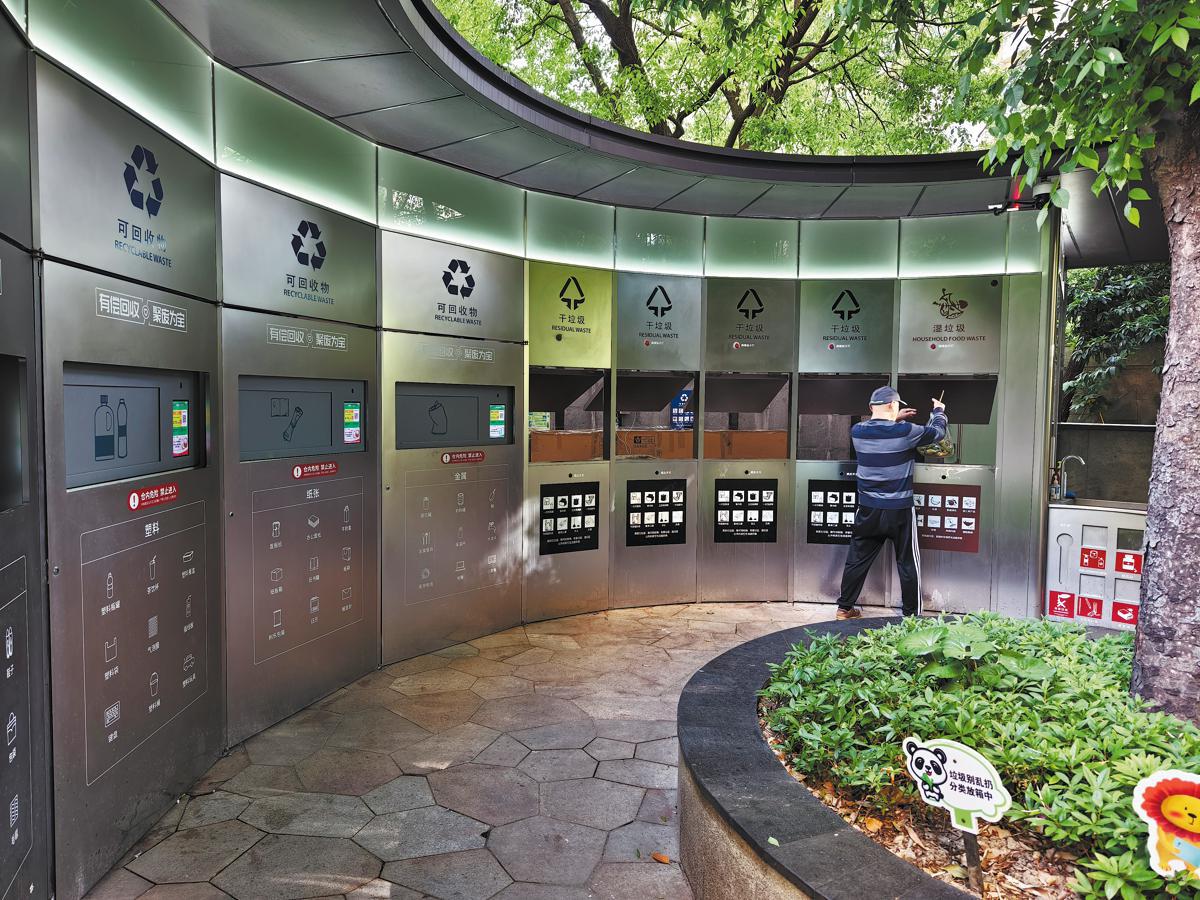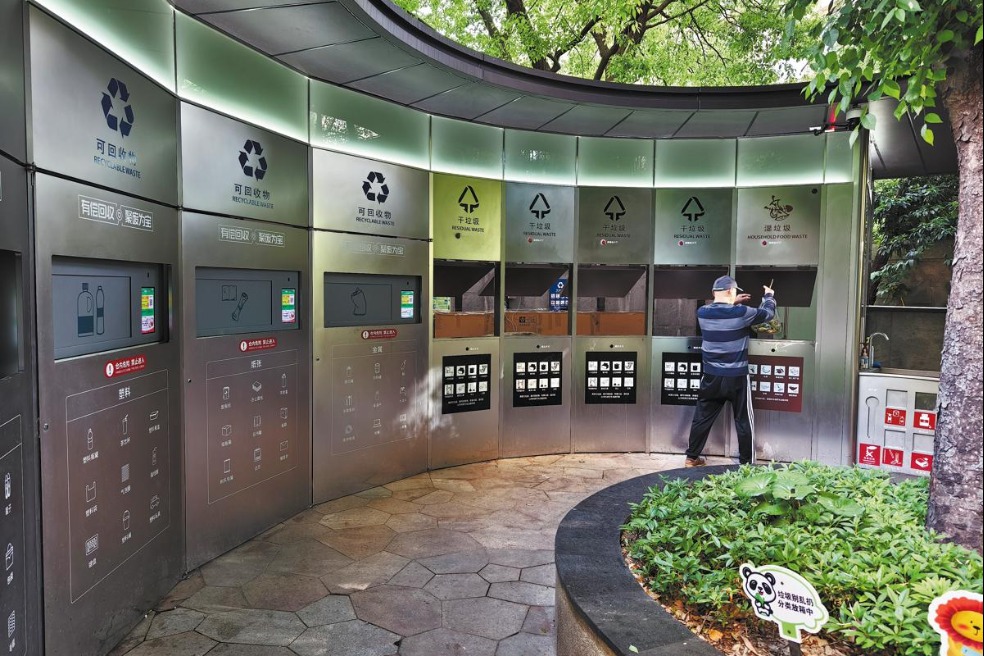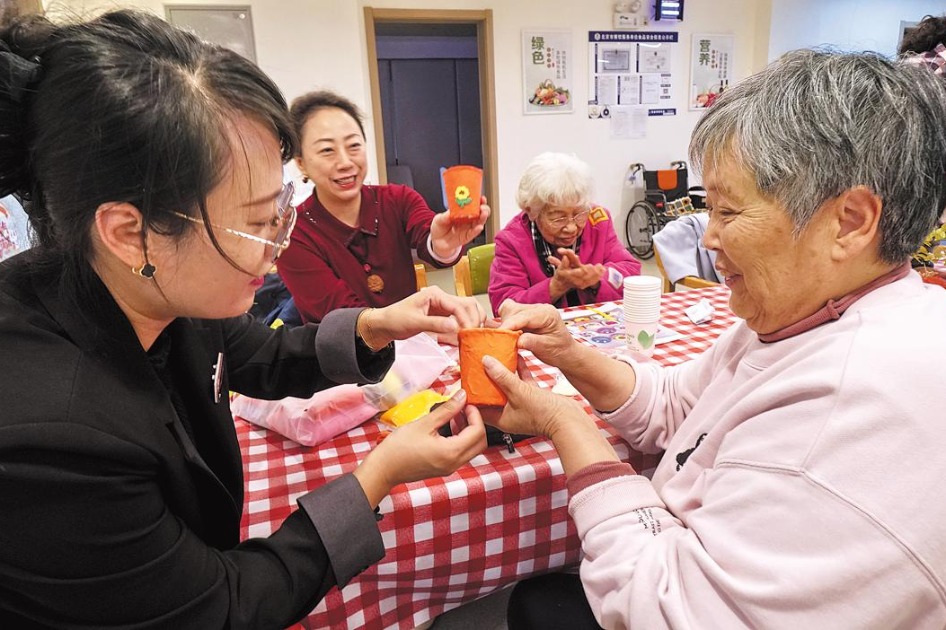President's landmark letter inspires wide adoption of waste sorting
Shanghai pilot program develops into leading example of cleaner, greener living


After years of daily practice, Shanghai resident Hou Yufeng believes household waste sorting has almost become a "muscle memory" for him and his neighbors.
They routinely drain and bag food waste, putting the refuse into the correct bin and then disposing of the bag in a general waste bin. Delivery boxes are also folded and sorted for disposal.
Even Hou's two children, aged 10 and 13, take the initiative to remind residents to separate hazardous waste.
Hou lives in one of the 84 residential compounds in Jiaxing Road subdistrict in Hongkou district, where President Xi Jinping, who is also general secretary of the Communist Party of China Central Committee and chairman of the Central Military Commission, first promoted the trend of trash sorting in November 2018.
Years later, in a letter of reply dated May 21, 2023, to volunteers engaged in trash sorting in the subdistrict, Xi expressed his hope that they could continue to play a unique role in grassroots governance, and encouraged more residents to develop the habit of sorting trash.
"The daily routine of waste sorting, although seen as a troublesome task by many in the first days, has evolved into a small thing to be so proud of over the years," Hou said.
He believes waste sorting is a window for people to observe urban governance and see the progress of society. "That's why we have witnessed residents' shift in mindset from mandatory sorting to voluntary compliance — even encouraging others to sort waste," he said.
Hou is a waste sorting volunteer, whose duty is to interact with residents and remind them of which bin to use to dispose of particular waste.
The enthusiasm for waste sorting in the municipality extends beyond residential compounds to restaurants, hotels, commercial areas, and office buildings.
Shanghai's residential compounds and other institutions achieved a sorting compliance rate of over 95 percent last year, Shanghai Landscaping and City Appearance Administrative Bureau data showed.
The high compliance rate has been achieved for a number of consecutive years. Before waste sorting became compulsory in July 2019, the compliance rate was 15 percent.
"In our subdistrict, the amount of kitchen waste and recyclables has been increasing year by year, leading to a reduction in the daily volume of general waste being incinerated for energy generation," said Tian Hongyi, who is in charge of rubbish sorting at Jiaxing Road subdistrict.
"From a societal perspective, waste sorting is about easing the burden on the city's waste management system and safeguarding nature," she said.























